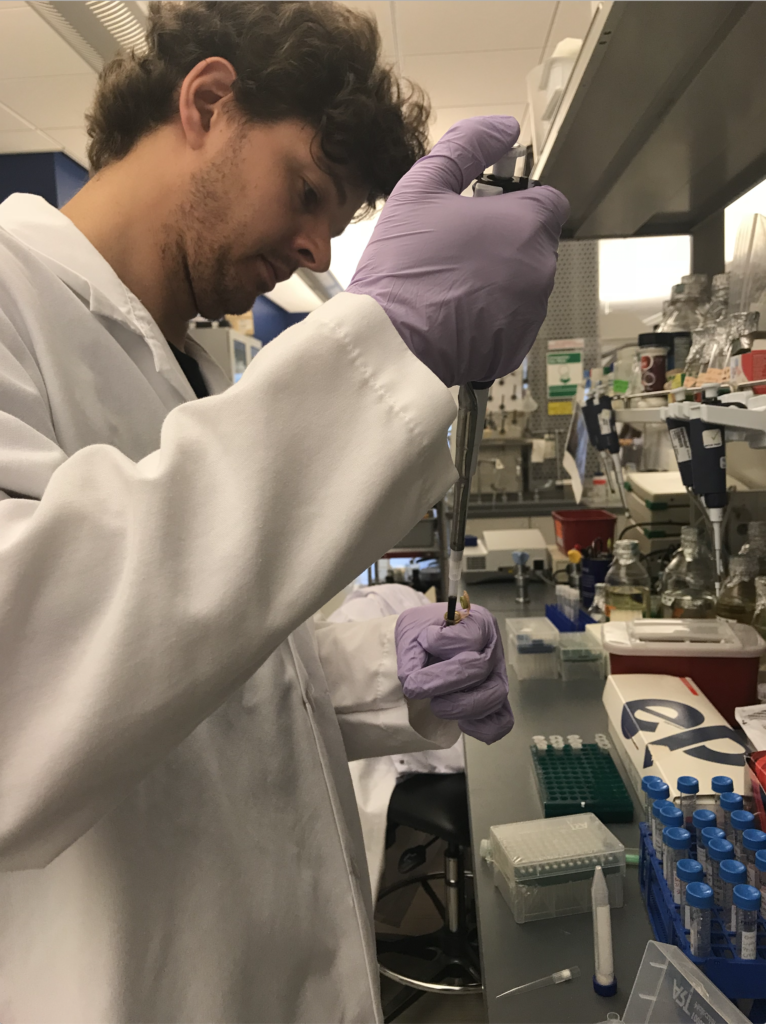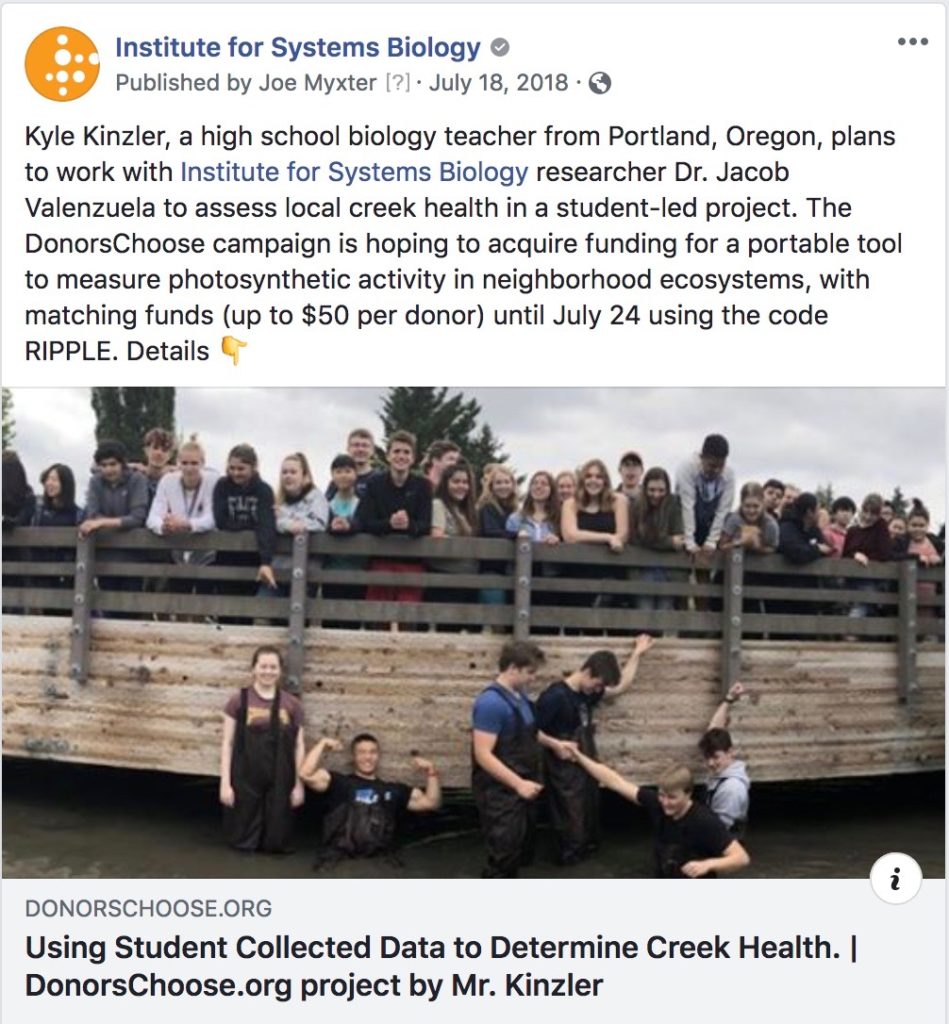High School Biology Classes ‘Come Alive’ After Teacher’s Summer with ISB
 isbscience.org/news/2019/03/04/high-school-biology-classes-come-alive-after-teachers-summer-with-isb/
isbscience.org/news/2019/03/04/high-school-biology-classes-come-alive-after-teachers-summer-with-isb/
Kyle Kinzler, a high school biology teacher from Portland, Oregon, uses a pipette while spending time at ISB last summer.
By Kyle Kinzler and Dr. Jacob J. Valenzuela
Spending time last summer at the Institute for Systems Biology (ISB) and with Research Scientist Dr. Jacob Valenzuela has made my classroom come alive with much more relevant and topical scientific research.
As part of a research team supported by an NSF-funded bioengineering project in Dr. Nitin Baliga’s lab, I was armed with new and innovative content to introduce into my curriculum. Specifically, I have been able to discuss gene regulation with my students in a new and captivating way that I wasn’t able to do before.
For instance, I introduced and explained the challenges of generating “green” biofuel as a sustainable energy source. This allowed my students to lead discussions surrounding genetic engineering, gene regulation, and economic constraints. I have also leveraged my effort and experience at ISB to — via DonorsChoose.org — acquire a state-of-the-art photosynthetic monitoring device to conduct field studies from our local environment.
Furthermore, I have multiple students conducting independent projects surrounding green biofuel content. One of my students is currently writing a case study about sustainable energy using the research our team conducted last summer. This will act as a backdrop for other teachers to explore and teach new biotechnological concepts.
Another bold student is conducting his own research project investigating how the green microalgae Chlamydomonas might be used to clean up contaminants in a local watershed by specifically examining growth-rate effects. He is hoping to present a poster of his research this spring to draw more attention and focus to what we are trying to accomplish.

High school biology teacher Kyle Kinzler leveraged his efforts and experiences at iSB to, via DonorsChoose.org, acquire a state-of-the-art photosynthetic monitoring device to conduct field studies.
This type of hands-on research is not common in current curriculum models — especially in high school. Importantly, this critical scientific exposure has had a very positive impact on the students, one in particular, is now considering a STEM degree in college. None of these opportunities would have been possible without the support from NSF, educators and the scientists at ISB.
“It was an absolute pleasure to work with Kyle this past summer. He is an amazing educator and a talented scientist. His passion and curiosity is extremely contagious,” said Valenzuela. “It takes a special type of person to push scientists and students to work harder — Kyle is that person. I am very happy to see how his experiences at ISB has translated to new and exciting engagement from his students and colleagues, particularly in regards to the environment. Great job, Mr. Kinzler!”
Kyle Kinzler is a high school biology teacher at Westview High School in the Beaverton School District in Portland, Oregon.
Jacob J. Valenzuela, PhD, is a research scientist in the Baliga Lab at ISB. Follow him on Twitter, Instagram and Facebook.
ISB’s Systems Education Experiences (SEE) program is a partnership program centered on an interdisciplinary summer internship where teachers and students work with STEM scientists to learn and share how systems science is applied to better understand and solve today’s complex problems.






